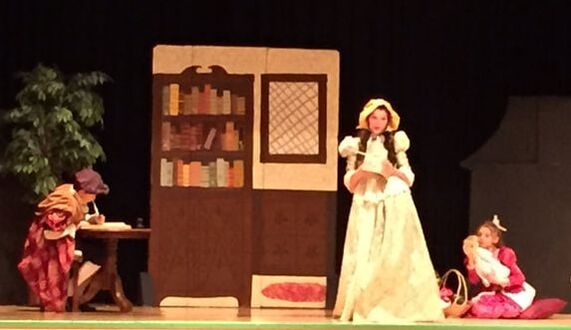In the meantime, many young hopefuls do not understand the Auditioning Process. Some show up to auditions completely unprepared because no one told them what to expect. Other kids know to come with a head shot and a short resume' including personal information (age, height, grade in school, hair color, voice or dance training, a list of previous roles or plays they have participated in, etc.).
I have been known to have the unprepared kids just sing "Happy Birthday to You" in the key of F major. The melody is known by nearly everyone and presents some telling problems. The octave jump for example lets me know a lot about the kid's vocal range, quality, and ability to sing in tune. Of course, I prefer children to come with at least 16 bars of a prepared song. The song should be familiar, in a style matching the play (but not from the play), well suited to the actor, and have a copy for the accompanist in the right key.
A memorized monologue is great to come prepared to perform, but is not always called for. Some directors have the kids read a few lines from the script or recite a poem or Nursery Rhyme with some kind of affectation (sweetly, angry, agitated, poised, etc.). The director wants to check for ability to show various emotions, project the voice, and observe how well facial expressions and body language can be read from a distance.
Then there will usually be a dance component. The choreographer will take the kids in a small group, teach them a few steps, and watch them repeat it. The director will be watching to see which actors have dance abilities or finds out what he can or cannot expect from his cast.

Because I typically work with very young children or first-timers, I often depend on Acting Games to help me cast the show, especially for a Summer Camp situation. The right Acting Games help me get to know the kids and their abilities very quickly.
Oh, how I hope that we can do more Children's Theater soon!
 RSS Feed
RSS Feed